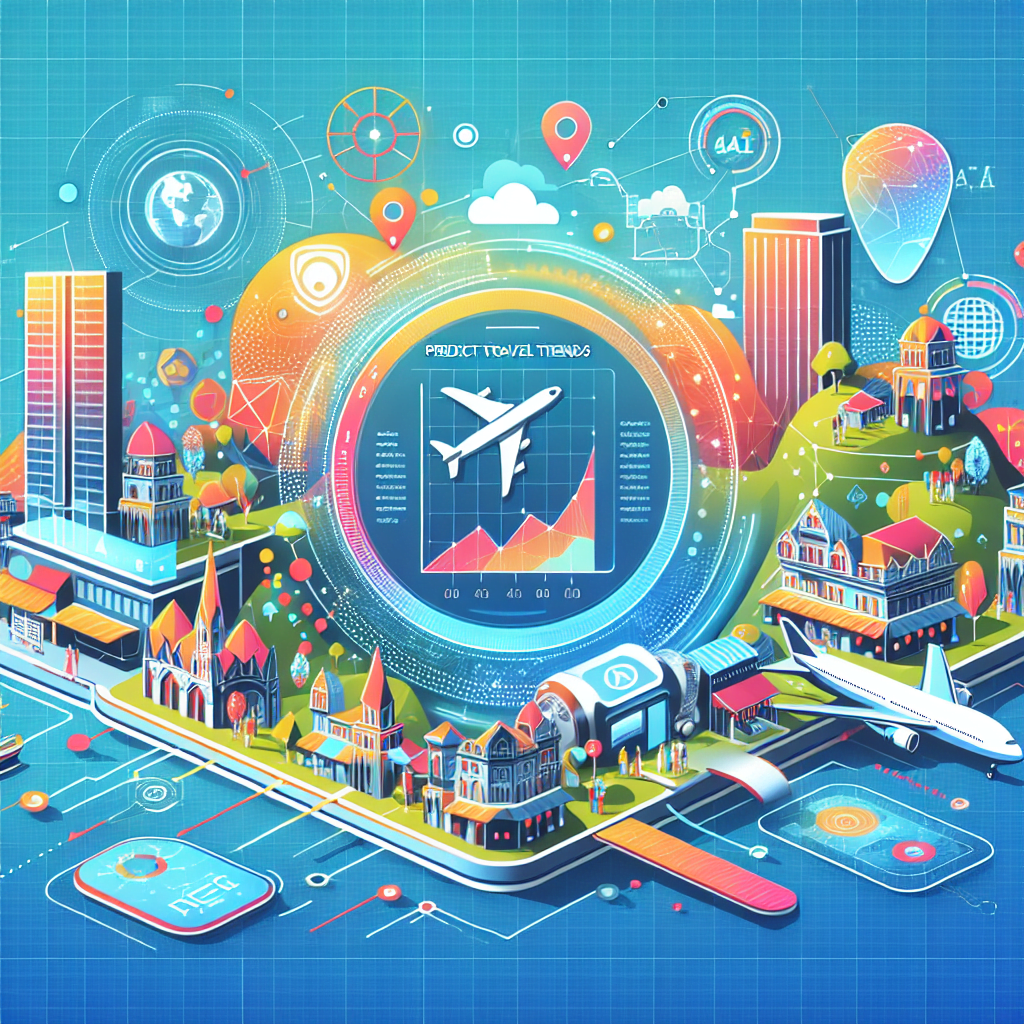Table of Contents
AI Travel Demand Forecasting: The Future of Travel Agency Success
The travel industry thrives on anticipation. Knowing where people want to go and when is the golden ticket for travel agencies to curate irresistible packages and maximize their revenue. But in a world of ever-changing travel trends, how can agencies stay ahead of the curve? The answer lies in the power of AI travel demand forecasting.
Gone are the days of relying solely on historical data and gut feelings. Today, sophisticated AI algorithms can analyze massive datasets, identify complex patterns, and predict future travel demand with remarkable accuracy. This allows travel agencies to make data-driven decisions, optimize their offerings, and ultimately, boost their bottom line.
In this article, we’ll delve into the exciting world of AI-powered travel demand forecasting, exploring its benefits, applications, and how it can revolutionize the way travel agencies operate.
AI-Powered Travel Demand Forecasting: The Basics
AI travel demand forecasting leverages the power of machine learning and predictive analytics to forecast future travel patterns. By analyzing a wealth of data points – from historical booking trends and flight searches to social media sentiment and economic indicators – AI algorithms can identify subtle correlations and predict future travel demand with impressive precision.
The Advantages of AI in Travel Demand Forecasting
The advantages of integrating AI into travel demand forecasting are numerous and impactful:
- Improved Inventory Management: Say goodbye to overbooked flights and hello to optimized inventory allocation. AI can predict demand fluctuations, allowing agencies to adjust pricing dynamically and ensure they have the right inventory available at the right time.
- Enhanced Customer Targeting: AI can analyze customer data to identify specific travel preferences and predict future booking behavior. This empowers agencies to create highly targeted marketing campaigns and personalized travel recommendations, leading to increased conversions and customer satisfaction.
- Competitive Advantage: In the fast-paced travel industry, staying ahead of the curve is crucial. AI-powered forecasting provides agencies with real-time insights into emerging travel trends, allowing them to adapt quickly and capitalize on new opportunities before their competitors.
Practical Applications of AI in Travel Demand Forecasting
Let’s explore some practical applications of AI in travel demand forecasting:
1. Predicting Destination Popularity
Imagine knowing which destinations will be trending next season. AI can analyze search engine data, social media buzz, and even weather patterns to predict the next “hot spot.” This allows agencies to proactively develop attractive travel packages and marketing campaigns around these destinations.
2. Optimizing Pricing Strategies
Dynamic pricing is key in the travel industry. AI algorithms can analyze historical pricing data, competitor pricing, and real-time demand to recommend optimal pricing strategies. This ensures agencies remain competitive while maximizing their revenue potential.
3. Personalizing Travel Recommendations
No two travelers are alike. AI can analyze customer data, including past bookings, browsing history, and social media activity, to create personalized travel recommendations. This level of personalization enhances the customer experience and increases the likelihood of booking.
Real-World Success Stories
“At Toronto Digital, we’ve seen firsthand the transformative power of AI in travel demand forecasting,” says Karman Verma, COO and Co-founder of Toronto Digital. “Our clients in the travel industry are leveraging AI to gain a competitive edge, optimize their operations, and deliver exceptional customer experiences.”
A leading travel agency implemented an AI-powered revenue management system to optimize their pricing and inventory allocation. By analyzing historical booking data, competitor pricing, and real-time demand, the AI system generated dynamic pricing recommendations and optimized inventory allocation. The result? A 15% increase in revenue and a significant reduction in unsold inventory.
Challenges and Solutions
While the benefits of AI in travel demand forecasting are undeniable, it’s essential to acknowledge potential challenges:
- Data Quality: AI algorithms are only as good as the data they are trained on. Ensuring access to accurate, complete, and unbiased data is crucial for accurate forecasting.
- Implementation Costs: Implementing AI-powered solutions can require significant upfront investment. However, the long-term ROI and competitive advantage gained often outweigh the initial costs.
Solutions:
- Partner with experienced data analytics firms like Toronto Digital to ensure data quality and leverage cutting-edge AI technologies.
- Explore cloud-based AI solutions that offer scalability and cost-effectiveness.
The Future of Travel Demand Forecasting
AI-powered travel demand forecasting is no longer a futuristic concept – it’s a game-changer happening now. By embracing this technology, travel agencies can unlock unprecedented insights, optimize their operations, and thrive in the increasingly competitive travel landscape.
Ready to harness the power of AI for your travel agency? Contact Toronto Digital today for a free consultation and discover how we can help you leverage AI to predict travel trends and achieve your business goals.
Frequently Asked Questions
- What is the best AI tool for predicting tourism trends?
There is no one-size-fits-all “best” tool. The ideal AI solution depends on your specific needs, budget, and technical expertise. Toronto Digital can help you identify the right tools and strategies for your agency.
- Can AI improve inventory management for travel agencies?
Absolutely! AI can predict demand fluctuations, allowing agencies to optimize inventory allocation, minimize unsold inventory, and maximize revenue.
- How can I get started with AI travel demand forecasting?
Start by assessing your agency’s needs and data infrastructure. Then, consider partnering with an experienced AI solutions provider like Toronto Digital to guide you through the implementation process.
For more insights, check out our blog or explore our portfolio to see how we’ve helped businesses like yours thrive with AI solutions.
